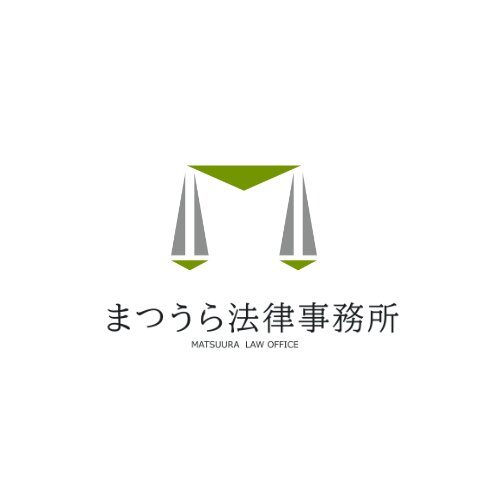Best Restructuring & Insolvency Lawyers in Japan
Share your needs with us, get contacted by law firms.
Free. Takes 2 min.
Or refine your search by selecting a city:
List of the best lawyers in Japan
About Restructuring & Insolvency Law in Japan
Restructuring and insolvency law in Japan refers to the legal processes and frameworks designed to assist businesses and individuals experiencing financial distress. These laws offer mechanisms for either restructuring debts to allow a business to survive or for an orderly liquidation of assets when recovery is not feasible. Japan has both formal court-based procedures and more flexible out-of-court options. The aim is to balance the interests of creditors with those of debtors, maintaining the stability of the economy and the integrity of the business environment.
Why You May Need a Lawyer
People often seek legal assistance in restructuring and insolvency matters for several reasons. Common situations include:
- Facing mounting debts or cash flow issues as a business or individual
- Being threatened with lawsuits or asset seizures by creditors
- Needing to negotiate with banks or other creditors to restructure loans
- Managing employee issues in the context of business closure or downsizing
- Pursuing court-based insolvency proceedings such as bankruptcy, civil rehabilitation, or corporate reorganization
- Participating as a creditor in another party's insolvency process
- Seeking to understand personal liability for company debts as a director or manager
- Protecting intellectual property or other assets during restructuring
A lawyer can provide guidance on appropriate legal options, represent you in negotiations or court, and help you minimize potential risks and liabilities.
Local Laws Overview
Japanese restructuring and insolvency law is governed by several key statutes. The main laws and procedures include:
- Bankruptcy (Hasan) Law: Provides for liquidation of both individuals and companies that cannot pay their debts.
- Civil Rehabilitation (Minji Saisei) Law: Allows individuals or companies to restructure debts and continue business under court supervision.
- Corporate Reorganization (Kaisha Kosei) Law: Designed for larger companies, this process is more complex and aims to preserve the business as a going concern.
- Special Liquidation (Tokubetsu Seisan): A simplified liquidation process for dissolving companies outside the full bankruptcy framework.
- Out-of-court Workouts: Japan enjoys several collaborative frameworks like the Turnaround ADR, where parties restructure debts without formal court proceedings.
These laws recognize creditor priorities, offer protections for certain essential contracts, and outline strict rules for asset distribution. Japan emphasizes rehabilitation and turnaround where possible, but also ensures orderly liquidation when necessary.
Frequently Asked Questions
What are the main types of insolvency procedures in Japan?
The primary insolvency procedures are Bankruptcy, Civil Rehabilitation, Corporate Reorganization, and Special Liquidation. Each is suited to different situations and types of debtors.
Can an individual file for restructuring, or is it only for companies?
Both individuals and companies can initiate legal processes for debt relief. Civil Rehabilitation and Bankruptcy are commonly used by individuals as well.
How long do insolvency proceedings typically take in Japan?
The duration varies, but Bankruptcy often takes several months to a year, while Civil Rehabilitation and Corporate Reorganization may take longer due to the complexity of restructuring plans.
Are directors personally liable for company debts?
Generally, directors are not personally liable unless there is evidence of misconduct or personal guarantees were provided. However, legal advice is crucial to assess specific risks.
What happens to employees during insolvency?
Employees' claims, such as unpaid wages, have preferential status in insolvency proceedings. However, layoffs or business closures may occur, depending on the situation.
Can I keep operating my business after filing for insolvency?
This depends on the procedure. Under Civil Rehabilitation or Corporate Reorganization, the goal is to allow the business to continue. Bankruptcy usually leads to business closure and asset liquidation.
How are creditors paid during insolvency?
Creditors are prioritized according to the law, with secured creditors and preferred claims (like wages) paid first, and remaining assets distributed among unsecured creditors.
Is it possible to negotiate debt settlements without going to court?
Yes, out-of-court workouts and voluntary arrangements (like Turnaround ADR) are popular in Japan for reaching settlements that avoid formal litigation.
What information and documents will I need to prepare for legal advice?
Typical requirements include financial statements, a list of debts and creditors, contracts, employee lists, and documentation of assets and liabilities.
How can foreign creditors or companies participate in Japanese insolvency proceedings?
Foreign creditors can file claims in Japanese insolvency cases, but should consult with lawyers familiar with cross-border insolvency and Japanese procedures.
Additional Resources
If you need further information or assistance, the following resources and organizations can be helpful:
- Ministry of Justice (MOJ) - Provides information on current insolvency laws and procedures
- Japanese Association of Turnaround Professionals (JATP) - Offers guidance on business turnaround support
- Japan Federation of Bar Associations (JFBA) - Can help you find licensed attorneys specializing in restructuring and insolvency
- Local Legal Affairs Bureaus - Offer consultations for individuals and small businesses
- Small and Medium Enterprise Agency - Provides support and advice for struggling businesses
Next Steps
If you or your business are facing financial difficulties in Japan, it is essential to act quickly. Consider the following steps:
- Gather all relevant financial documents and records
- Seek initial advice from a qualified lawyer specializing in restructuring and insolvency
- Carefully review your situation to determine whether restructuring, negotiation, or formal insolvency is most suitable
- Ask about potential risks, including personal liability, company closure, employee issues, and creditor actions
- If you decide to proceed, your lawyer can help file the necessary documents and represent you in negotiations or court
Early consultation with a legal professional can provide valuable clarity and increase your options for a positive outcome. Remember that each case is unique, and tailored legal advice is essential in this field.
Lawzana helps you find the best lawyers and law firms in Japan through a curated and pre-screened list of qualified legal professionals. Our platform offers rankings and detailed profiles of attorneys and law firms, allowing you to compare based on practice areas, including Restructuring & Insolvency, experience, and client feedback.
Each profile includes a description of the firm's areas of practice, client reviews, team members and partners, year of establishment, spoken languages, office locations, contact information, social media presence, and any published articles or resources. Most firms on our platform speak English and are experienced in both local and international legal matters.
Get a quote from top-rated law firms in Japan — quickly, securely, and without unnecessary hassle.
Disclaimer:
The information provided on this page is for general informational purposes only and does not constitute legal advice. While we strive to ensure the accuracy and relevance of the content, legal information may change over time, and interpretations of the law can vary. You should always consult with a qualified legal professional for advice specific to your situation.
We disclaim all liability for actions taken or not taken based on the content of this page. If you believe any information is incorrect or outdated, please contact us, and we will review and update it where appropriate.
Browse restructuring & insolvency law firms by city in Japan
Refine your search by selecting a city.















